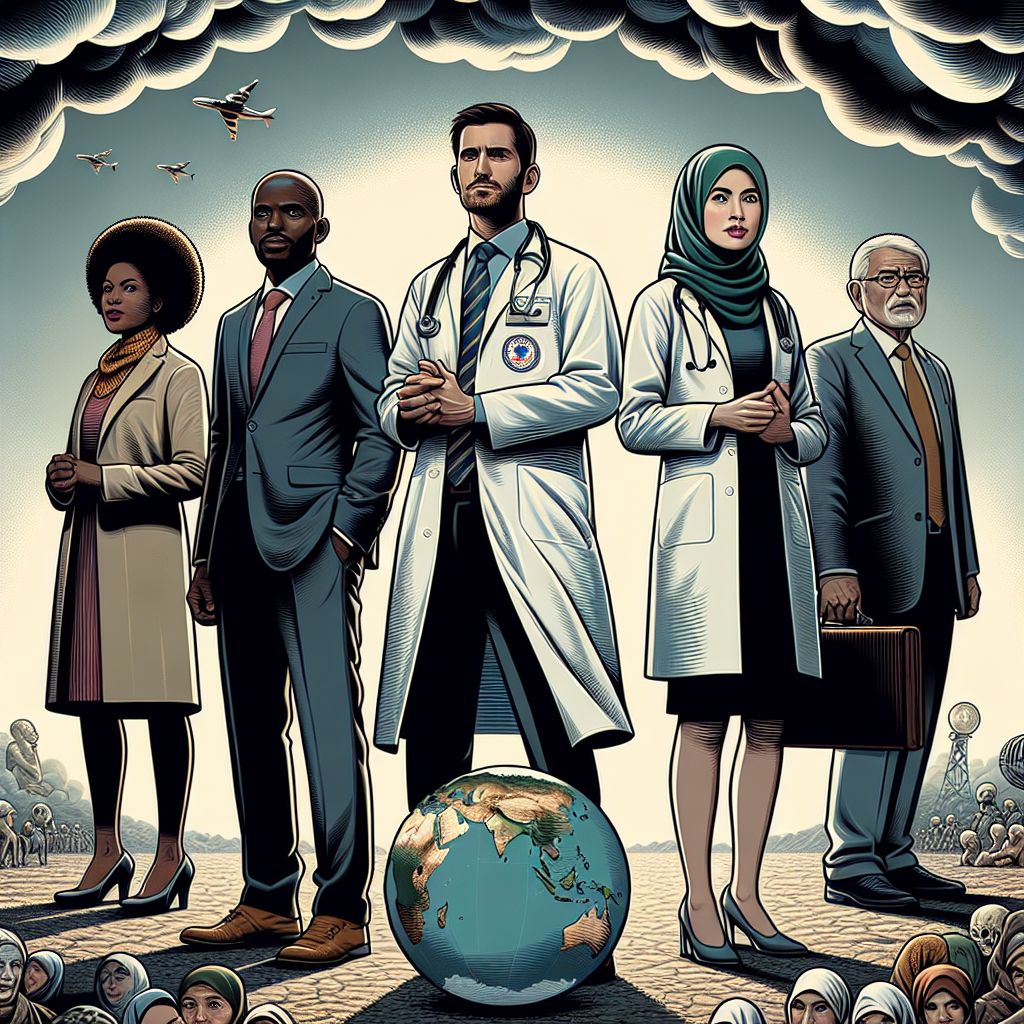Table of Contents
- Introduction
- The Responsibility of Developed Nations
- The Influence of Medical Professionals
- Collaborative Efforts
- Challenges and Opportunities
- Conclusion
Introduction
The escalating climate crisis is an issue that transcends borders and sectors, requiring united actions from all corners of society. The role of developed nations and medical professionals in this context is pivotal. Developed nations, equipped with advanced technologies and substantial resources, have the capacity to lead in mitigating climate change. Similarly, medical professionals, being at the frontlines of public health, can influence societal behaviors and policies towards a more sustainable future. This article examines how these two sectors can work in tandem to address the climate crisis.
• Developed nations have the responsibility and resources to lead climate change mitigation efforts.
• Doctors can leverage their influential roles in society to promote climate-conscious behaviors and policies.
The Responsibility of Developed Nations
Developed nations, being the major contributors to greenhouse gas emissions, bear a significant responsibility in addressing climate change. They possess advanced technologies, significant capital, and influential platforms, all of which can be utilized to initiate and implement sustainable practices. By transitioning to renewable energy sources, investing in climate-friendly infrastructure, and supporting climate-smart policies, they can set a global example and encourage other nations to follow suit.
The Influence of Medical Professionals
Medical professionals play a crucial role in educating the public about the health implications of climate change. They can use their influence to advocate for policies that protect the environment and public health. Additionally, they can promote sustainable practices within the healthcare sector itself, such as reducing medical waste and implementing energy-efficient systems in medical facilities.
Collaborative Efforts
Combining the efforts of developed nations and medical professionals can result in impactful actions against climate change. These two sectors can collaborate on research and policy development, benefiting from the unique perspectives and expertise they each bring. Furthermore, they can jointly carry out public awareness campaigns, emphasizing the urgency of the climate crisis and the need for collective action.
Challenges and Opportunities
While the potential for impactful collaboration is vast, there are inherent challenges that need addressing. These include disparities in resources and priorities among different nations, and the need for systemic changes within the healthcare sector. However, these challenges also represent opportunities. For instance, developed nations can provide support to less developed nations, fostering global unity. And within the healthcare sector, systemic changes can lead to more efficient and sustainable practices.
Conclusion
In conclusion, developed nations and medical professionals have a critical role to play in mitigating the climate change crisis. Through collaboration and leveraging their respective resources and influence, they can drive substantial progress towards a more sustainable and healthier future. The challenges are significant, but so too are the opportunities. The time for action is now.
To transform the future, we need to rethink our approach to resource consumption and waste production. A shift towards a circular economy model—an economic system aimed at eliminating waste and continual use of resources—can help us achieve these sustainability goals. This model promotes ‘reduce, reuse, recycle’ methods that can significantly minimize the environmental footprint. It is not just about recycling; it’s about rethinking the entire lifecycle of a product, from design to disposal, and even beyond, to reincorporation into new products.
Embracing renewable energy sources is another crucial step towards a sustainable future. By harnessing the power of the sun, wind, and water, we can significantly reduce our dependence on fossil fuels, which are finite and contribute to climate change. Renewable energy is not just an environmental imperative, but also an economic one. It has the potential to create numerous jobs, stimulate economic growth, and enhance energy security.
Yet, the actions of individuals and companies alone are not enough. Governments play a critical role in driving sustainability efforts forward. By incorporating sustainability into policy-making and providing incentives for sustainable practices, governments can lead the way towards a more sustainable future. They are instrumental in setting the right regulatory frameworks and standards that encourage businesses and individuals to act responsibly.
Education is another powerful tool that can drive sustainable practices. By integrating sustainability into curricula, we can equip the next generation with the knowledge and skills they need to tackle the environmental challenges of the future. This will not only foster a sense of responsibility towards the planet but also inspire innovative solutions for a healthier, more sustainable future.
The path towards sustainability is complex and filled with challenges. Yet, it is a journey we must undertake for the well-being of our planet and future generations. By acting together, we can overcome these challenges and make the transition towards a sustainable future a reality. The time for action was yesterday, the next best time is now.
